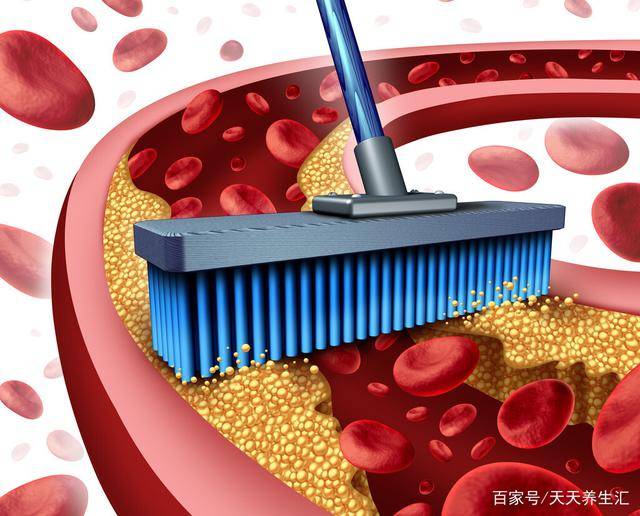Metabolic waste increases in the blood after aging, blood vessels become hardened, blood flow decreases, carrying capacity of oxygen and other nutrients declines, and in severe cases, “blockages” may occur, posing a threat to life.
Therefore, having a healthy cardiovascular system after aging means a healthier body and a better chance at longevity.
Therefore, we advocate for elderly individuals to consume a light diet, reducing the metabolic pressure on blood vessels, liver, kidneys, and other organs.
These 3 types of foods are the “cleaners” for blood vessels:
1. Fresh vegetables and fruits
Fresh fruits and vegetables are the main sources of dietary fiber for the human body, rich in minerals, vitamins, water, and low amounts of protein and fat. They have extremely low cholesterol and floating matter.
Dietary fiber promotes gastrointestinal motility, absorbing excess fats in the digestive tract, including cholesterol and some metabolic wastes.
We know that in elderly individuals, hardened blood vessels and thickened blood are mainly due to high blood lipids, including triglycerides, cholesterol, and other substances. Therefore, it is advisable to consume fewer high-fat, high-cholesterol foods.
Dietary fiber can absorb fats and cholesterol in the intestine, significantly reducing blood lipid pressure, serving not only as the intestine’s “cleaner” but also as the blood vessels’ “cleaner.”
Recommendation: Elderly individuals should consume around 400 grams of fresh vegetables daily, including at least 1 serving of leafy greens; and around 300 grams of fresh fruits.
2. Seaweed
Including kelp, nori, wakame, laver, and other seaweed varieties. They primarily inhabit seawater and synthesize organic substances through chloroplasts and photosynthesis.
The fiber content in seaweed is approximately 30 to 65% of the dry weight, much higher than legumes, grains, vegetables, and fruits on average. So, if dietary fiber helps with fat absorption, how can seaweed not be essential as the blood vessels’ “cleaner”?
Furthermore, seaweed contains rich vitamins B, C, and E, abundant minerals such as zinc, selenium, calcium, magnesium, iodine, and other elements, which are crucial for good health.
However, some seaweed varieties are tough and not easy to chew, so chewing thoroughly is advised. Elderly individuals can consume seaweed foods 2 to 3 times a week.
3. Water
Blood consists of 83% water, which is essential for maintaining blood flow. When the body lacks water, blood thickens, reducing flow and increasing the risk of blockages.
Additionally, dehydration leads to decreased urine output, affecting the elimination of metabolic waste.
Therefore, cultivating a habit of drinking water, staying hydrated to promote blood circulation, assists in cleaning harmful substances from the blood vessels. Hence, proper hydration is crucial for vascular health.
Generally, the body needs about 2500 to 3000 milliliters of water per day.
Elderly individuals can increase fluid intake by consuming liquid foods like congee, unsweetened soy milk, and skim or low-fat milk. Fresh vegetables and fruits also contain significant water content.
Apart from fluid intake through food, it is recommended to drink 1200 to 1500 milliliters of water daily, preferably lukewarm water between 40 to 60 degrees Celsius. Avoid replacing water with coffee, strong tea, carbonated beverages, and the like.
In summary, elderly individuals need to consume foods rich in dietary fiber, vitamins, and minerals, along with maintaining good hydration to protect their blood vessels.
Meat consumption is also permissible but should be moderate. Control intake of high-fat, high-cholesterol, high-salt, high-sugar, and high-purine foods. Minimize fried, grilled, and barbecued cooking methods.
Furthermore, adopting healthy lifestyle habits including proper sleep schedules, regular exercise, weight management, maintaining a positive attitude, and undergoing regular medical check-ups are vital to ensuring overall health.


